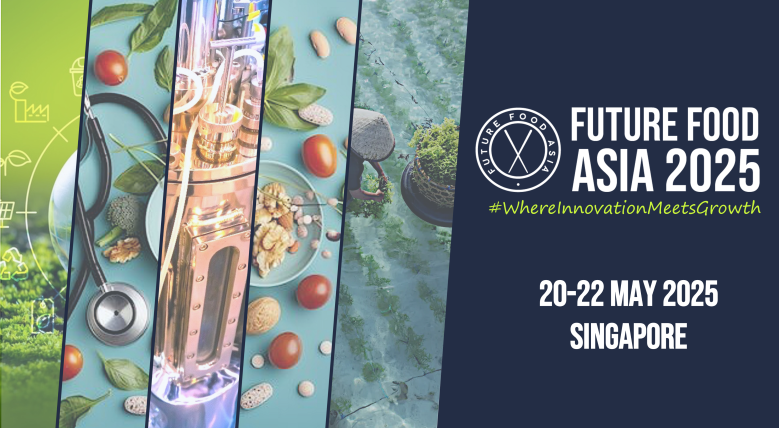Alt protein not enough: Products must also offer functional benefits
South Korea’s Koralo believes that alternative protein products need to offer superfood benefits to entice a new audience.
Koralo has developed seafood from the combined fermentation of two major protein sources: microalgae and mushroom mycelium, creating what is essentially a hybrid protein product from two types of superfoods.
“Microalgae naturally contains the nutrition of the sea in terms of omega-3 as well as the various proteins and vitamins; whereas mycelium from mushroom roots is high in protein and also provides a desirable texture for these products,” Koralo Co-Founder and CEO Sina Albanese said.
Hybrid product innovation increasingly important to ‘overcome shortcomings’ in APAC nutrition
Hybrid products made from both animal and plant-based proteins have the potential to break out of the alt-protein space and play a broader role in addressing nutritional gaps.
The development of these hybrid products were previously most often considered as part of the alternative protein category, but experts now believe that the need to focus on this segment goes far beyond protein alone.
“Hybrid products have a major opportunity to really stand out in terms of nutrition as well as other aspects and not just as an alternative protein, as there is room to blend and fuse things in order to overcome shortcomings of any individual ingredient,” Head of Nutrition, Singapore Institute for Food and Biotechnology Innovation (SIFBI) said.
Production revolution: Food biosynthesis eyed as major solution to meet China’s ‘new demands’
China is looking to develop food biosynthesis as a major solution to meet ‘new food demands’ and supply challenges in the market.
Biosynthesis here refers to the process of using microorganisms as ‘factories’ to produce end products such as nutrients, including proteins, carbohydrates, vitamins and more.
Whilst biosynthesis per se is not a new process, there is a particular drive in China right now to fully develop this as a full-fledged production solution for the food industry, a movement spearheaded by academic and industrial research and supported by the government.
“The government of China is very focused on biosynthesis now, especially for the food industry, and development of this area was highlighted in both the 2024 national master plan as well as the recent 2025 one which shows continued interest,” Jiangnan University Academic Committee Director, Chinese Communist Party member and bioengineering expert Professor Chen Jian said.
Shake Your Plants seeks to fill dehydration and nutrient gaps in UAE with functional beverages
Functional beverage brand Shake Your Plants (SYP) aims to address dehydration and nutrient deficiency issues among the UAE population, while actively seeking global expansion.
The firm was founded in 2022 by Lia Coelho and Justine Dampt, both of whom have lived in the UAE for over 15 years. Its first product, Kombucha+, was introduced in 2024.
According to Dampt, the UAE is the ideal place to launch a start-up, especially one like SYP, which aims to redefine hydration through plant-based innovation.
“Hydration is a critical issue here. With extreme heat and an active population, dehydration is a real concern, yet many people still don’t drink enough water or rely on sugary, artificial drinks."
Singapore’s Altimate Nutrition debuts cricket protein bars in retail channels, seeks to expand distribution
Singapore start-up Altimate Nutrition has launched its cricket protein bars via both offline and online retail channels, while actively seeking distributors and expanding direct-to-consumer (DTC) sales.
This development has been a long time coming for the firm, having awaited regulatory approval for nearly four years.
After the Singapore Food Agency (SFA) announced the approval of 16 species of insects for consumption in July 2024, Altimate Nutrition kickstarted its production in Thailand, although it took three months before the first batch of products arrived in Singapore.
“We had to liaise not only with SFA, but also Thai authorities to export the products to Singapore. As the regulation is new, there were several checks to be done on the cricket farm and processing facility, causing the delay. But we are now officially available in Singapore,” Hiew Yuen Sheng, co-founder and chief operating officer of Altimate Nutrition said.





